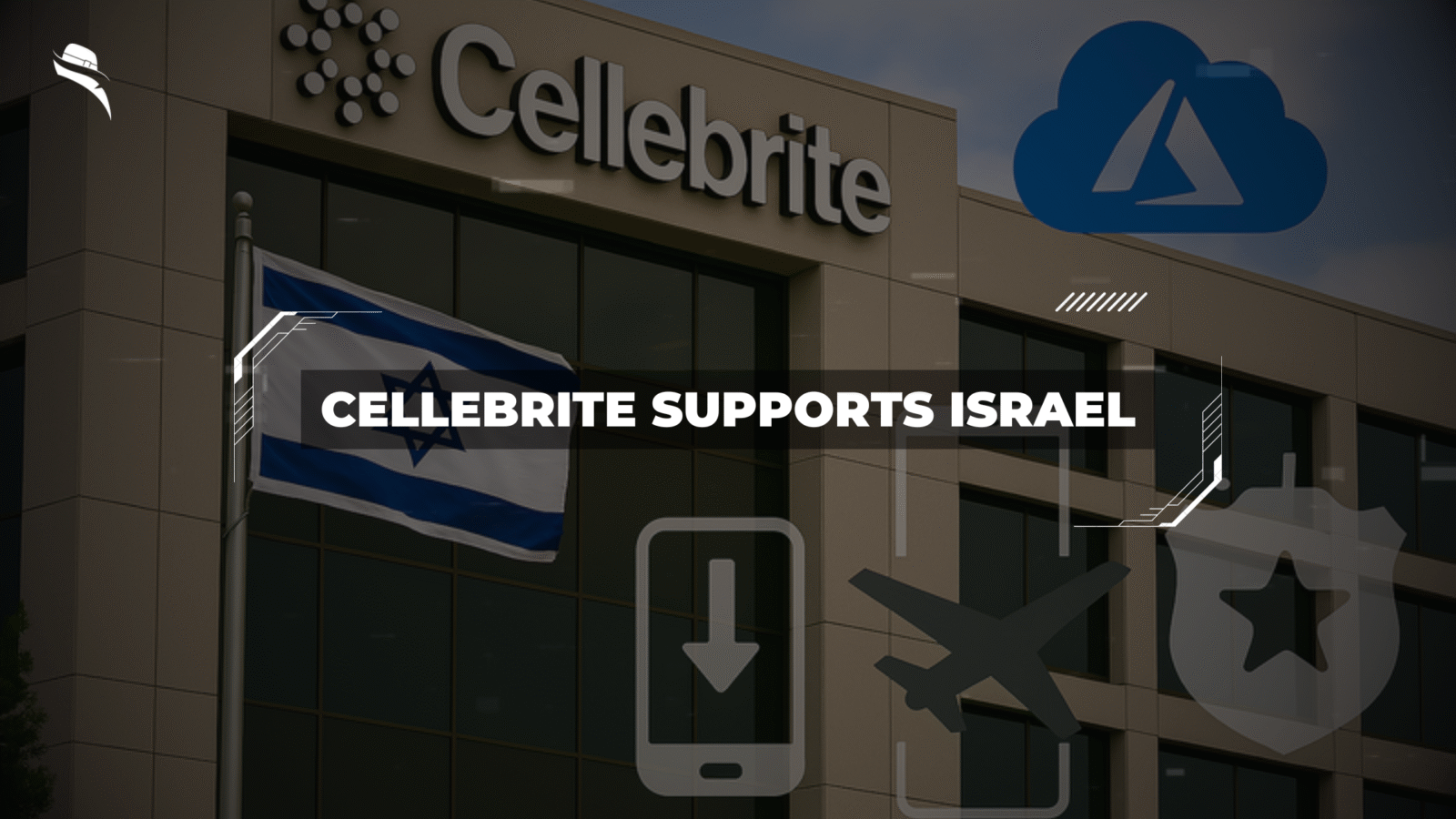Cellebrite supports Israel through its close cooperation with Israeli intelligence agencies, while its powerful phone extraction tools are used by state police forces across the United States. Valued at approximately $2.4 billion in 2021, Cellebrite DI Ltd. is a digital forensics company headquartered in Petah Tikva, Israel, with fourteen offices worldwide.
The company’s sophisticated phone extraction tech has become essential for law enforcement agencies. In fact, Cellebrite Israel Phone Extraction Tech can circumvent passcode locks and security protections on most current mobile devices. Furthermore, Cellebrite Israel Police Collaboration extends beyond their home country, with the company selling its products to regional agencies in at least 20 U.S. states. The technology is so effective that it recently made headlines for helping the FBI unlock the phone of former U.S. President Donald Trump’s would-be assassin.
This widespread adoption comes at a significant cost. The Arizona Department of Public Safety spent around $110,000 over three years on subscriptions alone, while the Iowa Department of Public Safety invested approximately $92,000. Despite these costs, law enforcement agencies continue to expand their surveillance capabilities, with New York Governor Kathy Hochul announcing $20 million in new funding for such technology.
Cellebrite Supports Israel & Its Role in High-Profile Investigations
Cellebrite’s technology has become increasingly prominent in major criminal investigations worldwide. The Israeli digital forensics firm provides crucial tools that enable law enforcement to access and analyze data from mobile devices in cases where traditional methods would fail.
The Trump assassination attempt case
In July 2023, Cellebrite’s extraction capabilities played a pivotal role following the attempted assassination of former President Donald Trump. When investigators needed to quickly access the suspect’s locked mobile device, they turned to Cellebrite’s Universal Forensic Extraction Device (UFED). This technology allowed the FBI to bypass security measures and recover potentially critical evidence without waiting for warrants to access cloud data or cooperation from device manufacturers. The speed of extraction proved essential in determining whether the suspect had accomplices or had communicated his intentions beforehand.
Cellebrite’s involvement in the October 7 Hamas attack
Following the October 7, 2023, Hamas attack on Israel, Cellebrite Israel Phone Extraction Tech became an integral component of the subsequent investigation. Israeli security forces utilized Cellebrite’s tools to analyze devices recovered from militants, helping to establish communication networks, identify additional suspects, and potentially prevent follow-up attacks. The company’s close relationship with Israeli authorities facilitated the rapid deployment of its latest extraction capabilities during this national security crisis.
Additionally, the attack reinforced Cellebrite’s commitment to supporting Israeli defense operations. As a company headquartered in Petah Tikva, Cellebrite provided technical expertise and specialized training to security personnel working on the investigation, demonstrating the strategic advantage of having domestic digital forensics capabilities during security emergencies.
Why law enforcement turns to Cellebrite
Law enforcement agencies increasingly rely on Cellebrite for several compelling reasons. First, the company’s tools can extract data even when devices are locked, damaged, or have security features enabled. This capability is particularly valuable in time-sensitive investigations where delays could endanger lives.
Second, Cellebrite offers comprehensive extraction capabilities that go beyond simply accessing a device. Their systems can recover deleted messages, location data, app usage history, and even data from encrypted applications. This thoroughness provides investigators with context and connections that might otherwise remain hidden.
Third, Cellebrite’s technology continuously evolves to counter new security features in modern smartphones. As device manufacturers implement stronger protection measures, Cellebrite develops corresponding extraction techniques, ensuring law enforcement maintains access to critical digital evidence.
Moreover, the company’s Pathfinder analysis software uses artificial intelligence to identify patterns and relationships within the extracted data, helping investigators make sense of complex information quickly. This combination of extraction power and analytical capability makes Cellebrite particularly valuable for agencies facing sophisticated criminal operations or terrorism threats.
How Cellebrite’s Phone Extraction Tech Works
Behind every successful digital investigation lies Cellebrite Israel’s sophisticated extraction technology. Understanding how this technology works reveals why it has become indispensable for law enforcement agencies worldwide.
Logical vs physical extraction
Cellebrite’s extraction methods fall into two main categories. Logical extraction pulls accessible files and data through the device’s operating system without modifying the device. Physical extraction, conversely, creates a complete bit-by-bit copy of the device’s memory, including deleted and hidden content. This technique bypasses the operating system entirely, allowing access to substantially more data, including deleted content that remains physically present on the storage medium.
Bypassing passcodes and encryption
One of Cellebrite Israel Phone Extraction Tech’s most powerful capabilities is circumventing security measures. The company employs multiple methods to bypass device locks, including brute force attacks that systematically try combinations and exploit security vulnerabilities in operating systems. Cellebrite can access locked iPhones running recent iOS versions and Android devices with security patches. Their UFED Premium tool specifically unlocks and extracts data from high-end devices manufactured by Apple, Samsung, Huawei, and others.
Cloud and app data access
Beyond physical devices, Cellebrite supports Israel through tools that can extract data from cloud services and applications. Their Cloud Analyzer can recover information from Google, Microsoft, Apple, and other cloud accounts when proper legal authorization exists. This capability extends to extracting data from popular applications like WhatsApp, Signal, and Telegram – even when those apps employ encryption. The technology can recover chat histories, media files, and metadata that provide valuable context for investigations.
AI-powered analysis tools like Pathfinder
After extraction, making sense of vast amounts of data presents another challenge. Cellebrite’s Pathfinder software uses artificial intelligence to analyze connections between communications, identify patterns, and highlight relevant evidence. The system can automatically tag content types, recognize faces in images, and map relationships between suspects based on their communications. This AI assistance significantly reduces analysis time, allowing investigators to quickly identify critical evidence among terabytes of data.
Through these combined capabilities, Cellebrite Israel Police Collaboration has yielded impressive results across numerous investigations. The technology continues to evolve, maintaining pace with smartphone security advancements and providing law enforcement with powerful digital forensics tools.
Cellebrite and Israel Police Collaboration
The partnership between Israel’s security apparatus and its homegrown digital intelligence firm runs deep. Cellebrite Israel has maintained an extensive relationship with domestic law enforcement since at least 2016, providing critical digital investigation capabilities throughout the country.
Joint operations and intelligence sharing
The close-knit collaboration between Cellebrite Israel and national security forces has proven vital in numerous operations. Between 2016 and 2025, Israeli Police awarded Cellebrite contracts worth approximately $11 million, highlighting the government’s substantial investment in domestic surveillance capabilities. This partnership extends beyond mere product purchases—Cellebrite actively assists in intelligence gathering and analysis during critical security situations.
Importantly, Cellebrite’s products are classified as “dual-use civilian services” rather than security-related tools. According to critics, this distinction enables the company to operate with minimal oversight from the Israeli government, consequently allowing greater flexibility in deployment and application.
During the 2023-2025 conflict in Gaza, Israeli authorities utilized Cellebrite tools extensively to harvest data from thousands of Palestinians’ mobile devices. Initially claimed to target militant groups exclusively, the Israeli military later acknowledged that most individuals whose phones were accessed were civilians.
Training and deployment in Israeli investigations
Eight specialized Cellebrite units operate across police stations throughout Israel, serving as digital forensic hubs where officers receive training and technical support. The Israeli Police have repeatedly renewed Cellebrite’s contracts without competitive tender processes, citing the company’s unique capabilities.
Founded in the 1990s, Cellebrite evolved from a consumer technology firm into a surveillance powerhouse by recognizing the lucrative potential in law enforcement partnerships. Under leadership beginning in 2004, the company strategically recruited skilled technicians from Unit 8200—Israel’s elite intelligence agency, often described as a finishing school for spyware firms.
Use in counterterrorism and national security
In the aftermath of the October 7 Hamas attack, Cellebrite’s extraction technology became an essential counterterrorism tool. The Jewish News Syndicate reported that Cellebrite helped unlock phones belonging to Hamas operatives who participated in the attacks, enabling Israeli security forces to map networks and identify additional suspects.
Furthermore, Cellebrite allegedly received Pentagon funding to develop technology specifically designed to identify and map Hamas operatives in Gaza. This cross-border collaboration underscores the company’s strategic value in both Israeli and international counterterrorism efforts.
Beyond terrorism cases, Cellebrite’s technology has proven valuable in dismantling criminal networks. In one notable example, their extraction and analysis tools helped expose an international crime ring, leading to 46 arrests and asset seizures worth €13.75 million through collaboration between Belgian and Spanish police.
Global Expansion and U.S. State Police Adoption
Cellebrite’s market dominance extends far beyond Israeli borders, with its digital forensics tools now a staple in law enforcement agencies worldwide. The company serves approximately 7,000 customers globally, including 5,300 federal, state, and local law enforcement agencies and 1,700 corporations and service providers. This extensive reach has made Cellebrite Israel a pivotal player in digital investigations across continents.
Widespread use across 20+ U.S. states
Throughout America, Cellebrite supports Israel through its expansive presence in domestic law enforcement. The company has sold its wares to regional agencies in at least 20 states, including the Illinois State Police, the Missouri State Highway Patrol, and the Arizona Department of Public Safety. Notably, Cellebrite maintains active accounts in all 50 states and all twenty largest police departments in the country.
The adoption is comprehensive—one document states that Cellebrite’s Universal Forensics Extraction Device is “used by every law enforcement agency in the United States, including the FBI and many law enforcement agencies around the world”. This widespread implementation translates to impressive usage statistics, with Cellebrite’s technology utilized in more than 1.5 million investigations globally each year.
Subscription model and recurring costs
Financially, Cellebrite has shifted its business approach from one-time purchases to recurring revenue streams. Currently, 88% of the company’s total annual revenue comes from subscription licenses. This change affects government budgets substantially:
- The Arizona Department of Public Safety spent approximately $110,000 over three years on subscriptions alone
- The Illinois State Police invested just over $45,000 on renewals
- The Iowa Department of Public Safety allocated around $92,000
One Cellebrite client recently signed a nearly one-million-dollar agreement that expanded their relationship with the company, demonstrating the substantial investments agencies are making. Cellebrite has acknowledged this shift, stating: “Changes have come to our licensing model, which means you should expect adjustments to terms and pricing”.
Integration with local cybercrime units
Cellebrite Israel Phone Extraction Tech has become deeply embedded in specialized cybercrime units across America. In one example, Director Powers built a unit that now services 29 agencies from 11 states. These specialized units often form collaborative partnerships to share resources and expertise.
The Nampa Police Department created the Treasure Valley Digital Forensics Task Force, partnering with the Canyon County Sheriff’s Office, Caldwell Police Department, and the Canyon County Prosecuting Attorney’s Office to share costs for Cellebrite software and storage. This collaborative approach has become increasingly common as agencies seek to maximize their digital forensic capabilities while managing budget constraints.
As cybercrime units, child exploitation task forces, white collar crime centers, and ordinary highway patrol departments all adopt this technology, Cellebrite Israel Police Collaboration techniques developed domestically are now standard practice in American law enforcement operations.
Ethical Concerns and International Backlash
Despite Cellebrite’s widespread adoption by law enforcement agencies, the company faces mounting criticism for its technology’s role in human rights abuses worldwide. Unlike competitors such as NSO Group, Cellebrite has yet to face trade blacklisting or sanctions, possibly due to its extensive work with U.S. authorities providing political cover.
Use in repressive regimes
Evidence shows Cellebrite technology has been deployed in China to surveil people at the Tibetan border, in Bahrain to persecute tortured political dissidents, and in Myanmar to extract data from Reuters journalists’ phones. Although the company has pledged to stop selling in China and Myanmar, enforcement remains spotty. According to human rights organizations, the company’s products have enabled detentions and harassment of journalists, activists, and minorities in repressive regimes, including Belarus, Russia, Venezuela, Bangladesh, and Saudi Arabia.
Human rights violations and surveillance abuse
In Serbia, a 2024 Amnesty International investigation uncovered how authorities used Cellebrite tools to unlock activists’ phones and install spyware. The investigation revealed that Cellebrite products were used to extract data from mobile devices belonging to journalists and activists without legal authorization. In at least two documented cases, Cellebrite UFED exploits were used to bypass Android security mechanisms to covertly install spyware during police interviews.
Cellebrite’s response and oversight claims
In response to criticism, Cellebrite established an Ethics and Integrity Committee in 2021 to advise its Board of Directors on ethical business practices. The company insists its technology supports “forensically sound, lawfully sanctioned investigations” and is neither spyware nor surveillance. After Amnesty’s Serbia report, Cellebrite suspended service to “relevant customers,” stating it took “precise steps to investigate each claim in accordance with our ethics and integrity policies.”
Calls for regulation and transparency
Civil liberties advocates argue that Cellebrite’s proliferation represents a serious threat to privacy and due process. “We can’t allow every federal department to turn into its own spy agency,” warned Albert Fox Cahn of the Surveillance Technology Oversight Project. Nonetheless, a training video obtained by journalists revealed a senior Cellebrite employee instructing customers to keep their extraction methods “hush hush,” raising further transparency concerns among legal experts who emphasize that authorities need to be open about evidence collection methods.
For a broader look at how global tech companies are shaping Israel’s digital infrastructure, read our main piece: Tech Companies That Support Israel
Final Thoughts
As mobile device forensics continues to evolve, Cellebrite Israel faces unprecedented challenges in an increasingly security-conscious digital landscape. The rapid advancement of mobile technology, coupled with stronger encryption, creates growing obstacles for accessing password-protected smartphones. Indeed, this reality often requires investigators to attempt multiple extraction methods, yet success remains constrained by time, resources, and expertise.
Cellebrite’s mission centers on enabling global customers to “protect and save lives” through enhanced digital investigations that “accelerate justice in communities worldwide”. The company emphasizes its AI-powered Digital Investigation Platform allows customers to “lawfully access, collect, analyze and share digital evidence”.
Nevertheless, many cybersecurity professionals argue that privacy and security need not be mutually exclusive. Tools can be designed to detect harmful material while simultaneously safeguarding personal privacy through selective extraction and clear guidelines.
Ultimately, the future of digital forensics likely includes quantum computing-based methods that will both strengthen encryption and create new decryption possibilities. Meanwhile, ongoing societal debates regarding privacy rights versus government surveillance will continue shaping the framework of mobile device security and investigation.
For the field to maintain legitimacy, professionals must adhere to established ethical guidelines, promote dialogue between privacy advocates and investigators, and ensure oversight mechanisms remain robust. The challenge ahead lies in balancing investigative needs with individual rights in increasingly complex digital environments.
FAQs
1. What is Cellebrite, and where is it based?
Cellebrite DI Ltd. is an Israeli digital forensics company headquartered in Petah Tikva. Valued at $2.4 billion in 2021, it develops advanced phone extraction tools used by law enforcement agencies globally.
2. How does Cellebrite support Israel?
Cellebrite supports Israel through deep cooperation with Israeli intelligence and police. Its tools have been used in counterterrorism efforts, including the aftermath of the October 7 Hamas attacks, and the company provides technical expertise and training to Israeli security forces.
3. What does Cellebrite’s phone extraction technology do?
Cellebrite’s tech can bypass phone passcodes, extract deleted data, access encrypted apps like WhatsApp and Signal, and even recover cloud-stored information with legal access. It supports both logical and physical data extractions.
4. Has Cellebrite worked with U.S. law enforcement?
Yes, Cellebrite’s tools are used by law enforcement in at least 20 U.S. states, including agencies in Illinois, Arizona, and New York. Its software is reportedly in use by all 50 states and the FBI.
5. Was Cellebrite involved in the Trump assassination attempt investigation?
Yes. In July 2023, Cellebrite’s UFED technology was used by the FBI to unlock the suspect’s phone in the attempted assassination of former President Donald Trump, helping recover critical evidence quickly.
6. What are the ethical concerns about Cellebrite?
Human rights groups have criticized Cellebrite for selling its tech to repressive regimes like China, Myanmar, and Saudi Arabia. Reports indicate its tools have been used to target journalists, activists, and civilians without proper legal oversight.
7. How much does Cellebrite charge law enforcement agencies?
Cellebrite follows a subscription-based model. For example, the Arizona Department of Public Safety spent $110,000 over three years, while other states like Iowa and Illinois have made similar investments.
8. Does Cellebrite extract data from cloud services and encrypted apps?
Yes. Using its Cloud Analyzer, Cellebrite can legally access data from platforms like Google, Apple, and Microsoft. It can also extract messages and media from encrypted apps such as Telegram, WhatsApp, and Signal.
9. What is Cellebrite Pathfinder, and how does it work?
Pathfinder is Cellebrite’s AI-powered analysis tool. It visualizes patterns, maps suspect connections, tags content, and reduces the time it takes investigators to analyze extracted data.
10. Has Cellebrite faced any financial backlash?
Yes. Storebrand Asset Management divested its $24 million stake, citing Cellebrite’s role in the surveillance of Palestinians. The company has also faced growing investor scrutiny over its international partnerships.
11. How is Cellebrite regulated?
Cellebrite claims its tools are “forensically sound” and used in “lawfully sanctioned investigations.” It formed an Ethics and Integrity Committee in 2021, but critics argue regulation is weak and transparency is lacking.
12. What are Cellebrite’s global clients besides Israel and the U.S.?
Cellebrite serves over 7,000 clients worldwide, including police departments, federal agencies, intelligence units, and private corporations in Europe, Asia, and the Americas.
13. Is Cellebrite classified as a surveillance or spyware company?
Cellebrite denies that it produces spyware. Instead, it brands its products as lawful digital investigation tools, though critics argue its capabilities overlap with surveillance and raise civil liberties concerns.







Leave a Reply